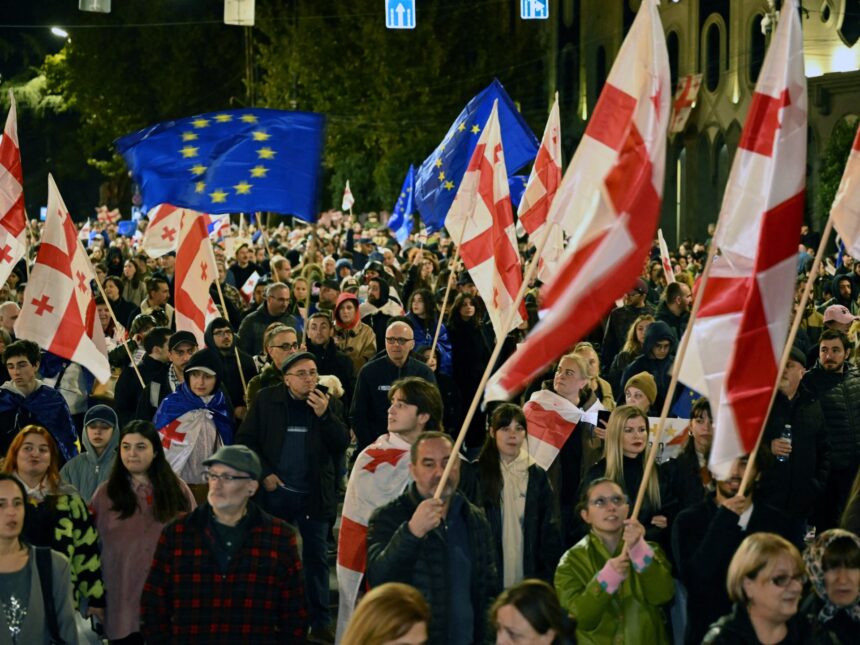Thousands of individuals in Georgia recently participated in a rally in support of European integration, just days before crucial parliamentary elections that will test the country’s commitment to democracy and its aspiration to join the European Union.
The upcoming elections will see a historic alliance of pro-Western opposition groups challenging the ruling Georgian Dream party, which has been accused by the EU of moving towards authoritarianism and straying from Georgia’s European trajectory. President Salome Zurabichvili, who has clashed with the government, joined the rally to emphasize the people’s desire for freedom, independence, and a European future.
Amidst a sea of EU and Georgian flags, protestors gathered at Tbilisi’s central Freedom Square after marching from various locations across the city. Several local NGOs issued a call for the rally to demonstrate unity, development, and commitment to the European Union.
The EU froze Georgia’s accession process following the passage of a controversial “foreign influence law” targeting civil society, which drew comparisons to Kremlin-style tactics. The move led to widespread protests and U.S. sanctions against numerous Georgian officials.
EU foreign policy chief Josep Borrell warned that Georgian Dream’s actions indicated a slide towards authoritarianism and underscored the elections as a critical moment for Georgia’s democracy and European path. Polls suggest that the opposition is poised to secure enough votes to form a coalition government and oust the ruling party led by billionaire Bidzina Ivanishvili.
Concerns have been raised about potential unrest if Georgian Dream refuses to relinquish power in the face of electoral defeat. Initially aligned with liberal pro-Western policies upon taking office in 2012, the party has since shifted course and faced accusations of cozying up to Moscow amidst Russia’s aggression in Ukraine.
Despite these challenges, Georgia’s aspirations to join the EU and NATO enjoy broad support among the population, with around 80 percent backing membership in multiple surveys conducted by organizations like the National Democratic Institute and the International Republican Institute.










